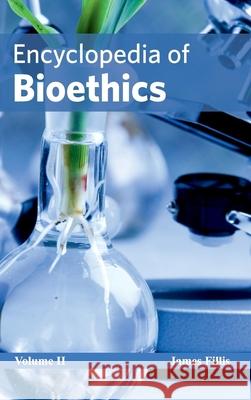Encyclopedia of Bioethics: Volume II » książka
Encyclopedia of Bioethics: Volume II
ISBN-13: 9781632421302 / Angielski / Twarda / 2015 / 164 str.
The aim of this book is to provide state-of-the-art information regarding the topic of bioethics; the ethics of medical and biological research. In addition to the existing factors, two new factors have contributed to the ideological shift in the second half of the last century. The first is the "ecological impact" of humankind on the environment due to rise in population and the second is the "innovative impact of science." Firstly, atomic physics introduced the scission of the elemental unit of matter - the atom. And then, molecular biology showed the decoding of genetic data and intervention of biological engineering which changed our conception of individual and species as the basic units in biology. This stage of re-evaluating our basics, however, often gets overshadowed by the threat of ecological disaster and humongous population increase, which not burden development with constraints, but also threatens the very survival of humankind. The future survival of our species depends on the interplay between its reproductive characteristics and the productivity of the habitat, which, even if increased by the intellectual efficiency of the human brain, is intrinsically limited. The flexible alternatives (which are biotechnological and biomedical) of the interaction between humankind and the natural surroundings is the fundamental base of the new domain - Global Bioethics.
The aim of this book is to provide state-of-the-art information regarding the topic of bioethics; the ethics of medical and biological research. In addition to the existing factors, two new factors have contributed to the ideological shift in the second half of the last century. The first is the "ecological impact" of humankind on the environment due to rise in population and the second is the "innovative impact of science". Firstly, atomic physics introduced the scission of the elemental unit of matter - the atom. And then, molecular biology showed the decoding of genetic data and intervention of biological engineering which changed our conception of individual and species as the basic units in biology. This stage of re-evaluating our basics, however, often gets overshadowed by the threat of ecological disaster and humongous population increase, which not burden development with constraints, but also threatens the very survival of humankind. The future survival of our species depends on the interplay between its reproductive characteristics and the productivity of the habitat, which, even if increased by the intellectual efficiency of the human brain, is intrinsically limited. The flexible alternatives (which are biotechnological and biomedical) of the interaction between humankind and the natural surroundings is the fundamental base of the new domain - Global Bioethics.











